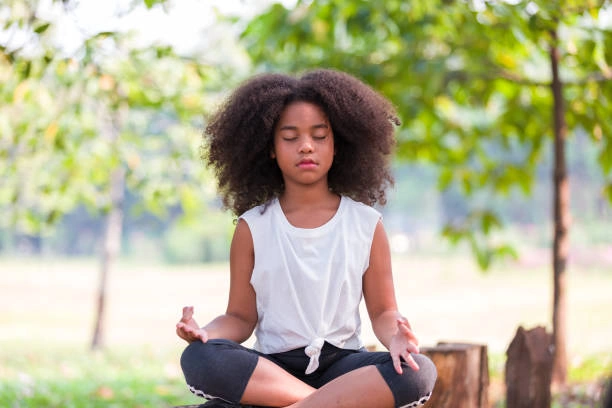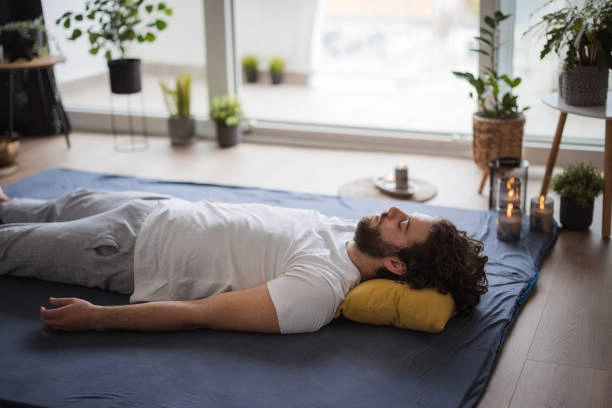How Does Meditation Affect Our Brain?
Have you ever experienced this situation:
You’re trying hard to finish a task, but you find it difficult to focus. Your mind drifts to all the things you need to do after work: picking up the kids, making dinner, doing laundry, and exercising, among other things. Then, when you finally refocus on the task at hand, you realize it’s almost the end of the workday! Now, you’re even more stressed and frantic, possibly missing the deadline.
Constantly thinking about all the things you need to or should do can interfere with your performance at work, school, or home—especially the task you’re currently working on.
When your mind starts wandering, taking a few minutes for meditation may help control those scattered thoughts and help you stay focused throughout the day. But meditation can have an even bigger impact.
Some studies suggest that meditation affects the brain in multiple ways, from changing its structure to reducing activity in the parts responsible for stress.

How Does Meditation Work?
People practice meditation for various reasons. It can help you become more aware of your surroundings and yourself, or it can offer a much-needed break in a busy day.
A typical meditation practice involves the following elements:
- A quiet environment, free from distractions.
- A comfortable posture.
- An open attitude, allowing thoughts to come and go naturally.
- Focus on breathing.
- A point of focus.
Meditation can be done alone, in groups, with professional guidance, or through apps and videos. If you’re a beginner, you can start with 3-5 minutes and gradually increase the time as you become more comfortable.
Begin by sitting quietly, breathing deeply through your nose, and exhaling through your mouth. Focus on your breath each time. If you lose focus and start daydreaming, don’t be discouraged. This is common—just gently bring your attention back to your breath.

The Effects of Meditation on the Brain
1. Changes in Brain Structure
Meditation changes how your brain responds to distractions. When you focus entirely on the present and train yourself to do so consistently, the structure of your brain actually changes.
In a study published in Psychiatry Research, a group of researchers found that eight weeks of mindfulness meditation increased the cortical thickness (gray matter density) in the hippocampus, which is responsible for memory and regulating emotions.
The study also found a reduction in the size of the amygdala, the part of the brain associated with stress, fear, and anxiety. Participants who showed these brain changes also reported feeling less stressed.
So, meditation not only changes the structure of the brain but also affects how people feel.
2. Reduces Stress
When you’re stressed, it’s harder to concentrate, and you may feel more anxious and disorganized.
A small study published in Biological Psychiatry observed the brain scans of 35 unemployed adults who reported high levels of stress. Participants were trained in either mindfulness meditation or relaxation exercises. After three days of training, researchers reviewed the brain scans and found more activity in brain regions associated with resting states. After a four-month follow-up, participants also showed improvements in blood markers for inflammation, which is linked to stress.

3. Improves Focus and Memory
When your mind wanders, it becomes harder to focus on tasks—whether it’s work, school assignments, or other responsibilities.
A 2013 study found that a two-week mindfulness meditation training program improved focus and attention while reducing mind-wandering.
Mindfulness meditation helps students improve learning and reduces distracting thoughts during exams, boosting memory. Students reported that after practicing mindfulness meditation, they recalled information faster and felt less distracted during tests.
Another study compared the brain scans of a group of meditators and non-meditators. Researchers found that those who meditated showed more stability in the posterior cingulate cortex, a brain region related to spontaneous thoughts and mind-wandering. This indicates that meditators can control their thoughts better than non-meditators. The same study also found that meditators were better at focusing on tasks.
4. Slows Aging
As you age, your brain undergoes changes. Experimental research suggests that meditation may protect your brain from, or reduce, these age-related changes.
In a 2015 study published in Frontiers in Psychology, researchers found that meditation might help preserve gray matter, which is crucial for information processing speed, slowing or even reversing cognitive decline associated with aging.
In the study, researchers compared the brain scans of 50 people who had meditated regularly for 20 years with those who had not. Both groups showed a decrease in gray matter as they aged, but the reduction was significantly less in the meditation group.
Researchers state that more studies are needed to confirm meditation’s effects on brain aging.
5. Reduces Anxiety and Depression
Meditation has been shown to help alleviate symptoms of depression and anxiety.
A 2019 review found that mindfulness-based meditation can help reduce depression symptoms on its own or in combination with more traditional treatments like medication and psychotherapy. These positive effects can last for six months or longer. The review also showed that meditation might help reduce anxiety symptoms, though typically in conjunction with other treatments.
In a previous article, we also mentioned that “Professor Rong Xinqi, through years of clinical experience and data, found that meditation practices based on hypnotherapy have been proven to effectively reduce anxiety, depression, and stress.”

Conclusion
Meditation is simple and accessible to everyone, and it can be practiced anywhere—whether you’re at work, home, school, or even in your car. You don’t need any special equipment, specific environment, or personnel.
Try different meditation techniques and find the one that best suits you and your lifestyle.







